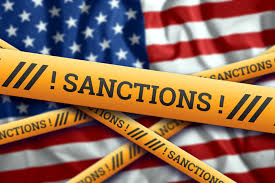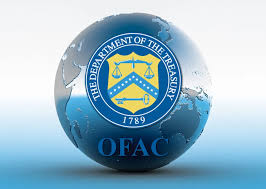C.H. Robinsom Settles with OFAC for $257,690 to Resolve Iran and Cuba Sanctions Violations

C.H. Robinson International Inc. (CHR), a Minnesota-based global transportation and logistics company, has agreed to pay $257,690 to settle civil liability for 82 apparent violations of sanctions against Iran and Cuba conducted by five of its non-U.S. subsidiaries. Over a period of more than three years, these five subsidiaries provided freight brokerage or transportation services for 82 shipments, to or from Iran, of Iranian- or Cuban-origin goods, or by dealing with an Iranian airline. CHR did not voluntarily disclose the conduct to OFAC.
Following a series of overseas acquisitions by CHR of freight and logistics firms, between November 2018 and February 2022, five of CHR’s foreign subsidiaries provided freight brokerage or transportation services for 82 shipments, to or from Iran (in two instances), of Iranian- or Cuban-origin goods (in 73 and six instances, respectively), or by dealing with an Iranian airline.
The primary reason for the violations was the failure of CHR to integrate the subsidiaries’ brokerage management systems into CHR’s system or otherwise updated to include the latest sanctions compliance controls and did not screen for potentially violative transactions.
CHR -Guangzhou

On September 16, 2021, one of CHR’s China-based subsidiaries, CHR-Guangzhou, provided transportation services for a shipment from China to Turkey. The first carrier identified on the air waybill was “W5,” the International Airport Transport Association code for Mahan Airlines, an Iranian airline, and the first destination was identified as IKA, the airport code for Tehran Imam Khomeini International Airport, Tehran, Iran. CHR-Guangzhou staff reviewed the airway bill before the shipment was sent but failed to recognize either the sanctions implications of Mahan Airlines’ involvement, or the fact that the first destination was Iran.
Space Cargo Group – Spain (SCG-Spain)
CHR acquired SCG-Spain in February 2019. On March 12, 2019, SCG-Spain sent spare parts for textile machinery from Spain to Iran. SCG-Spain was using its own export system into which CHR did not yet have visibility and over which it did not exercise control because it had not been integrated into CHR’s systems.
C.H. Robinson Canada (CHR-Canada)
Following an August 2017 acquisition, CHR established C.H. Robinson Company (Canada) Ltd. (CHR-Canada). From November 14, 2018 to February 17, 2022, CHR-Canada provided freight brokerage services for 71 shipments of goods of Iranian or Cuban origin valued at $448,731 destined for Canada. These Iranian- or Cuban-origin goods consisted mainly of consumer items. Six of the 71 transactions were apparent violations of the Cuban Sanctions because they were dealings in merchandise of Cuban origin. In addition, CHR-Canada engaged in 65 trade-related transactions involving Iranian-origin goods that would have been prohibited by Iranian sanctions
C.H. Robinson Australia (CHR-Australia)
Following a September 2016 acquisition, CHR established C.H. Robinson Australia (CHR-Australia). From April 26, 2019 to June 21, 2021, CHR-Australia acted in eight instances as a customs broker for the importation into Australia of Iranian-origin goods from Germany, Spain, Singapore, and Iran valued at $148,196.
C.H. Robinson Peru (CHR-Peru)
On December 21, 2019, a CHR-Peru employee facilitated an export valued at $74,919 from Peru to Iran by circumventing internal processes. The employee is no longer with CHR-Peru.
Discovery and Remediation
In 2022, CHR’s export compliance team discovered the above conduct during regular sample audits. The violations occurred due to the lag between acquiring the subsidiaries and their integration into CHR’s operating systems, which has checks in place to detect possible sanctions violations. These subsidiaries, acquired between 2016 and 2019, continued to use their own operating systems until at least 2022.
The settlement amount of $257,690 reflects OFAC’s consideration of the General Factors under the Enforcement Guidelines. OFAC determined the following to be aggravating factors:

(1) CHR failed to exercise due caution or care for its sanctions compliance obligations after acquiring overseas freight and logistics firms, when several of its subsidiaries engaged in prohibited conduct involving Iran and Cuba for up to 4.5 years following the acquisitions.
(2) CHR had reason to know, based on all readily available information, that the apparently violative conduct was occurring. Documentation of shipments involving Iranian- or Cuban-origin goods, or to or from sanctioned countries, was available throughout the shipment process.
(3) CHR’s foreign subsidiaries’ providing freight brokerage or transportation services for shipments to or from Iran, of Iranian- or Cuban-origin goods, or by dealing with an Iranian airline in these 82 instances caused harm to the objectives of two sanctions programs by benefitting two sanctioned jurisdictions.
(4) CHR is a large and sophisticated global transportation and logistics company that operates worldwide.
OFAC determined the following to be mitigating factors:
(1) CHR has not received a Penalty Notice or Finding of Violation from OFAC in the five years preceding the earliest date of the transactions giving rise to the Apparent Violations.
(2) CHR took prompt remedial measures. After the apparent violations were discovered in 2022, CHR imposed a manual hold on any shipments indicating potential export or sanctions compliance issues until compliance staff reviewed and approved them. It also created a trade compliance task force to improve system tools available to compliance managers, and developed additional OFAC-specific training mandatory for all relevant employees. In addition, almost all offices globally now use CHR’s brokerage management system.
(3) CHR was highly cooperative with OFAC’s investigation, responding to multiple OFAC inquiries and document requests and agreed to toll the statute of limitations.
This case highlights the importance for U.S. companies acquiring non-U.S. firms of establishing appropriate compliance controls and training as soon as possible after acquisition. The need to institute worldwide compliance functions, including sanctions-related technology and systems, is especially important to avoid potential violations. While integrating such systems, which can be time-consuming, companies should consider interim measures to minimize risk.

Similarly, companies that may become acquired by U.S. persons may wish to consider taking steps to limit the exposure potential buyers may face, including through compliance with U.S. sanctions, as potential acquirers may be liable for any subsequent violations set in motion prior to closing, and may factor such considerations into their decision-making.
This matter also emphasizes the benefits of foreign subsidiaries of U.S. companies having a compliance program that takes into account OFAC sanctions. Because the CACR and ITSR extend to foreign subsidiaries, imports and exports not involving the United States may nonetheless be subject to U.S. jurisdiction.
Finally, implementing systems and escalation protocols to ensure the careful review of all shipping documents such as air waybills, bills of lading, and certificates of origin can help prevent violations. Such documents may contain important information relevant to sanctions, such as port locations, product origin, and names and addresses of buyers, sellers, shippers and intermediaries.















